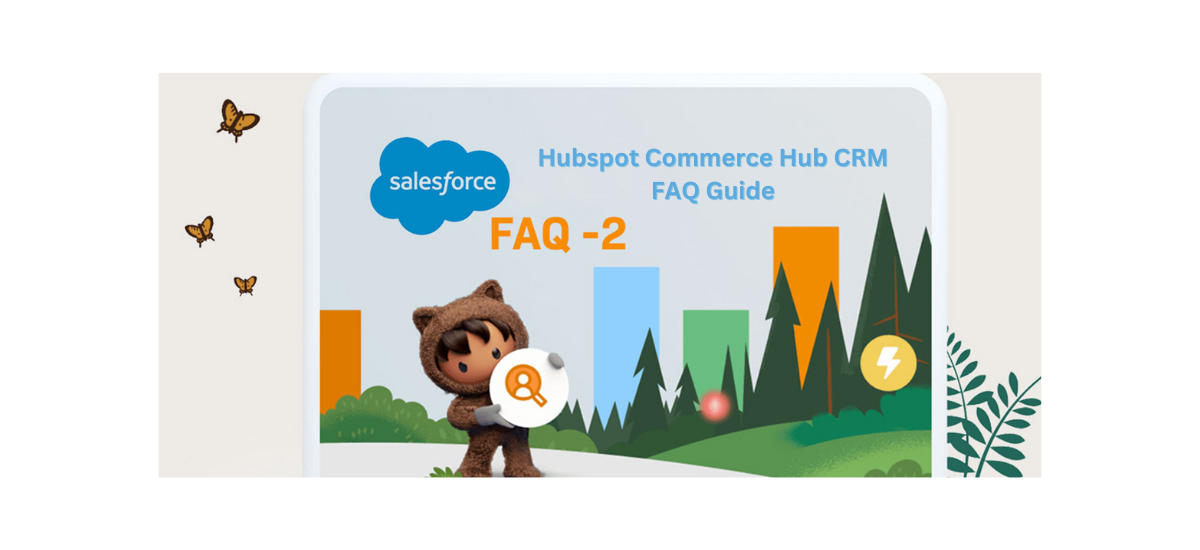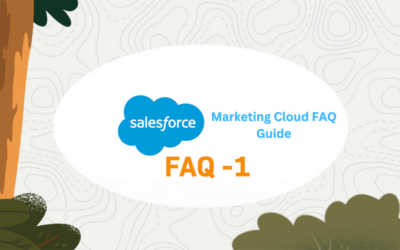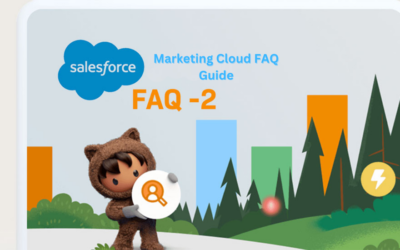In today’s dynamic business landscape, where customer relationship management is paramount, HubSpot CRM stands as a beacon of excellence. As companies strive to build lasting relationships with their customers and streamline their sales and marketing efforts, the role of a proficient HubSpot CRM user becomes pivotal. Whether you’re a seasoned CRM professional looking to enhance your skill set or a newcomer eager to dive into the world of customer relationship management, this comprehensive guide is your key to mastering HubSpot CRM. This resource will equip you with the knowledge and expertise needed to excel in interviews and in your day-to-day work, enabling you to harness the full potential of HubSpot CRM and drive your organization’s success.
In the pages that follow, you will delve deep into the intricate workings of HubSpot CRM, exploring its features, integrations, automation capabilities, and advanced analytics. You will discover how to harness the power of this platform to transform your sales and marketing strategies, streamline your workflows, and make data-driven decisions. With our meticulous collection of 20 technical questions and answers, you’ll not only be prepared for any HubSpot CRM interview, but you’ll also develop the skills to enhance your organization’s customer relationship management, ultimately leading to growth and success in today’s competitive business landscape. If you need assistance with Salesforce CRM setup and optimization, companies like CRM Force can provide valuable expertise and support.
1- How can you set up and use HubSpot’s integration with LinkedIn Sales Navigator for lead generation and outreach?
Answer: HubSpot CRM integrates with LinkedIn Sales Navigator, allowing sales professionals to import LinkedIn profiles, engage with leads on the platform, and sync LinkedIn connections with their CRM contacts. It streamlines lead generation and outreach efforts by leveraging LinkedIn’s vast professional network.
2- How can businesses create custom reports in HubSpot CRM to track specific metrics and KPIs?
Answer: In HubSpot CRM, you can create custom reports by selecting the “Reports” tab, clicking on “Create custom report,” and choosing the data you want to analyze. Custom reports allow businesses to track and analyze the specific metrics and KPIs that matter most to their operations.
3- What is HubSpot’s attribution reporting, and how can it help businesses understand the customer journey?
Answer: HubSpot’s attribution reporting provides insights into how different marketing and sales activities contribute to the customer’s journey and eventual conversions. It helps businesses identify the most influential touchpoints in the customer’s path to purchase.
4- How can businesses use the HubSpot CRM dashboard to gain a holistic view of their sales and marketing performance?
Answer: The HubSpot CRM dashboard provides a comprehensive overview of key sales and marketing metrics. Businesses can track their performance, identify trends, and make data-driven decisions to improve their strategies.
5- What is A/B testing in HubSpot CRM, and how can it be used to optimize email marketing campaigns?
Answer: A/B testing in HubSpot CRM involves sending different versions of an email to a sample of recipients to determine which performs better. It allows marketers to test elements like subject lines, content, and send times, ensuring that email marketing campaigns are optimized for maximum engagement and conversion.
6- What are Webhooks in HubSpot CRM, and how can they be used for real-time data updates?
Answer: Webhooks in HubSpot CRM are HTTP callbacks that send real-time data updates to external systems. They can be used to trigger actions, notifications, and data synchronization with external applications, ensuring that data is always up to date.
7- How can developers use HubSpot CRM’s CMS API to build custom web applications and pages?
Answer: Developers can use the HubSpot CRM CMS API to access and manipulate content and data within HubSpot’s CMS (Content Management System). This enables them to create custom web applications and pages that seamlessly integrate with HubSpot CRM.
8- What is the HubSpot App Marketplace, and how can businesses leverage it for CRM enhancement?
Answer: The HubSpot App Marketplace is a platform where businesses can discover and install third-party apps and integrations that extend the functionality of HubSpot CRM. Businesses can find solutions to enhance their CRM capabilities, such as e-commerce, analytics, and marketing automation tools.
9- What are some common issues with email deliverability in HubSpot CRM, and how can businesses address them?
Answer: Common email deliverability issues include being marked as spam, low open rates, and bounces. To address these issues, businesses should maintain a clean contact list, use authenticated sending domains, and follow email marketing best practices.
10- What steps should businesses take to ensure the privacy and security of customer data within HubSpot CRM?
Answer: To ensure data privacy and security, businesses should set up user permissions, enable two-factor authentication, and regularly review and audit access to sensitive customer data within HubSpot CRM. They should also adhere to data protection regulations like GDPR and HIPAA, as applicable.
11- How can HubSpot CRM users optimize their lead nurturing workflows for higher conversion rates?
Answer: To optimize lead nurturing workflows, users should regularly review and refine their email content, segmentation criteria, and timing of automated follow-ups. Testing and analyzing the performance of different workflow sequences can help identify opportunities for improvement.
12- What are some best practices for backup and data recovery strategies in HubSpot CRM?
Answer: Best practices for backup and data recovery include regular data exports, using the built-in data recovery tool in HubSpot, and keeping off-site backups to protect against data loss due to accidental deletions or system failures.
13- What are HubSpot workflows, and how can they automate marketing and sales processes?
Answer: HubSpot workflows are sequences of automated actions triggered by predefined conditions. In marketing, they can automate email campaigns, lead nurturing, and lead scoring. In sales, workflows can automate tasks like lead assignment, follow-ups, and data updates.
14- What is the purpose of HubSpot lead nurturing and drip email campaigns, and how can they be set up for automated communication with leads?
Answer: Lead nurturing and drip email campaigns in HubSpot CRM automate the process of sending a series of targeted emails to leads over time. They nurture leads by providing valuable content and guiding them through the sales funnel. You can set up these campaigns using workflows and email sequences.
15- What are custom properties in HubSpot CRM, and how can they be used for collecting and organizing specific data?
Answer: Custom properties in HubSpot CRM are user-defined data fields that can be used to collect and organize specific information unique to a business. Businesses can create custom properties to capture and manage data that is not covered by standard properties.
16- How can HubSpot CRM users effectively manage and segment their contact lists for targeted marketing campaigns?
Answer: Users can manage and segment contact lists in HubSpot CRM by defining criteria based on properties like lead source, engagement history, location, and more. This segmentation allows businesses to send highly targeted and personalized marketing campaigns to specific groups of contacts.
17- What is the significance of HubSpot CRM’s native integrations with popular email marketing platforms, and how do they simplify email campaigns?
Answer: HubSpot CRM’s native integrations with email marketing platforms like Mailchimp and Constant Contact simplify email campaigns by enabling seamless synchronization of contacts, email templates, and performance tracking. This streamlines email marketing efforts and ensures data consistency.
18- What are HubSpot CRM dashboards, and how can they be customized to display specific data and metrics?
Answer: HubSpot CRM dashboards provide a visual representation of key data and metrics. Users can customize these dashboards to display specific information by adding and rearranging reporting widgets. Customized dashboards enable users to focus on what’s most relevant to their goals.
19- What are conversion paths in HubSpot CRM, and how can they be used to track the interactions that lead to conversions?
Answer: Conversion paths in HubSpot CRM track the interactions a contact has with a business, from their initial interaction to their eventual conversion. This data helps businesses understand the steps that lead to conversions and make informed decisions to improve the conversion process.
20- What is the HubSpot App Marketplace, and how can businesses find and integrate third-party applications to extend CRM functionality?
Answer: The HubSpot App Marketplace is a platform where businesses can discover and install third-party apps and integrations that enhance HubSpot CRM’s capabilities. Businesses can search for apps in various categories, such as analytics, e-commerce, and customer support, to extend CRM functionality.
Conclusion
In conclusion, the landscape where customer relationships serve as the bedrock of business success, HubSpot CRM stands as the lighthouse guiding companies toward effective management, growth, and innovation. This extensive guide has armed you with the knowledge and skills needed to not only excel in HubSpot CRM-related interviews but also to truly empower your organization in its quest to build meaningful customer connections. The ability to harness the full potential of HubSpot CRM, combined with the capabilities of Commerce Hub, ensures your company remains agile, competitive, and responsive to the ever-evolving needs of the market.
As we draw the curtains on this comprehensive journey, it’s vital to recognize the pivotal role that Commerce Hub plays in the modern business landscape. Whether you’re delving into e-commerce, expanding your online presence, or adapting to the shifting digital market, the collaboration between HubSpot CRM and Commerce Hub provides the tools you need to thrive. By embracing this partnership, you’re not only facilitating growth for your organization but also fortifying your position as a CRM professional at the forefront of cutting-edge trends, perpetuating your capacity to steer your business toward sustainable success in this continually evolving landscape. To learn more about how CRM Force can assist you in recruiting top CRM talent and optimizing your CRM strategies for successful drip campaigns, contact us today. Together, let’s maximize your customer engagement Contact Us today.





